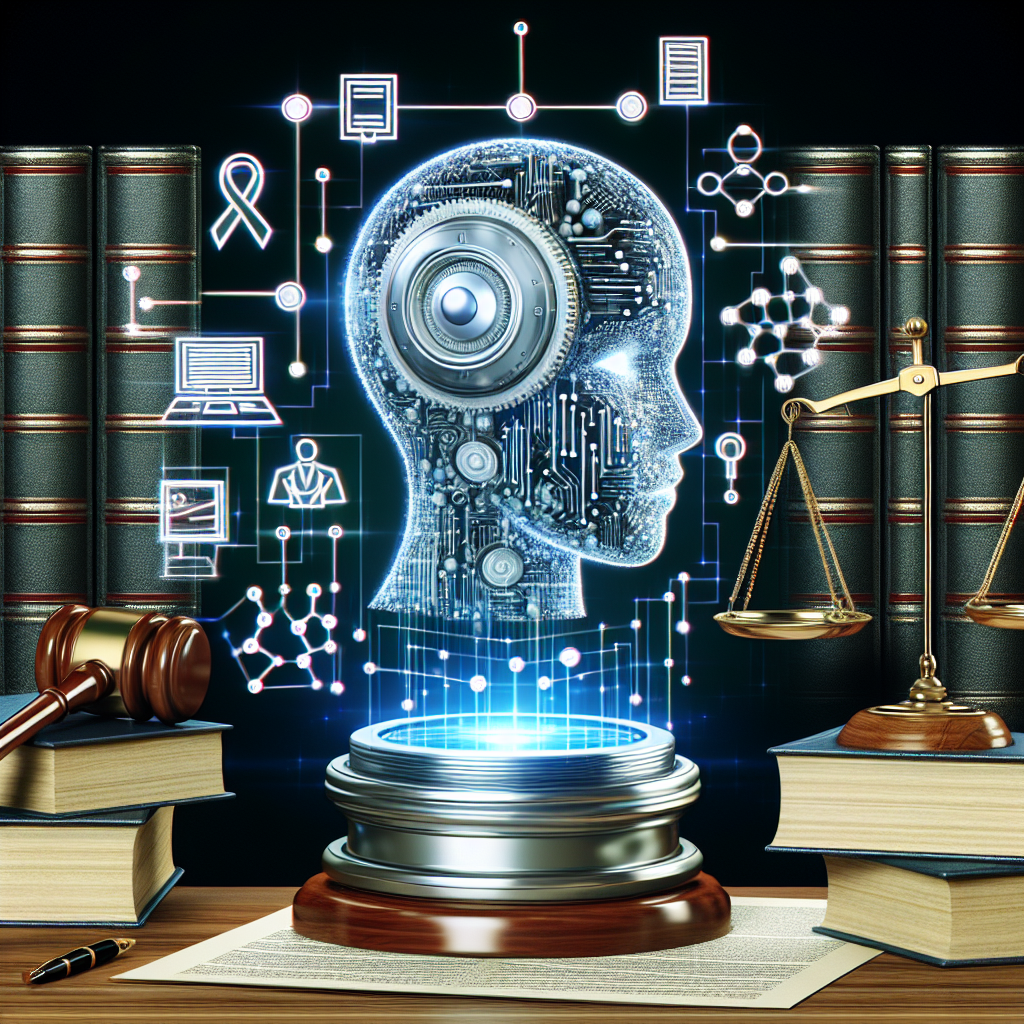Artificial Intelligence (AI) has been transforming various industries, and the legal profession is no exception. AI technologies are now being used in law firms and legal departments to improve efficiency, reduce costs, and provide better services to clients. From document review to legal research, AI is revolutionizing the way lawyers work. In this article, we will explore how AI is transforming the practice of law and its implications for the legal profession.
How AI is Transforming the Practice of Law
1. Document Review: One of the most time-consuming tasks for lawyers is reviewing and analyzing documents. AI technologies, such as natural language processing and machine learning, can now be used to automate this process. AI-powered software can quickly analyze large volumes of documents, identify relevant information, and flag potential issues. This not only saves time but also improves accuracy and reduces the risk of human error.
2. Legal Research: AI tools are also being used to streamline legal research. Instead of spending hours searching through case law and statutes, lawyers can now use AI-powered research platforms to quickly find relevant information. These platforms can analyze and categorize legal documents, extract key insights, and provide recommendations based on past cases and rulings. This not only speeds up the research process but also helps lawyers make more informed decisions.
3. Predictive Analytics: AI technologies can also be used for predictive analytics in the legal profession. By analyzing past cases and outcomes, AI systems can predict the likelihood of success in a particular case or the potential risks involved. This information can help lawyers develop more effective strategies and advise clients on the best course of action.
4. Contract Management: AI-powered contract management tools are also transforming the way lawyers handle contracts. These tools can automate the review and analysis of contracts, identify key terms and clauses, and flag potential risks. By streamlining the contract management process, AI technologies can help lawyers save time and ensure compliance with legal requirements.
5. Virtual Assistants: AI-powered virtual assistants are becoming increasingly popular in the legal profession. These virtual assistants can perform a wide range of tasks, such as scheduling appointments, managing documents, and conducting research. By delegating routine tasks to virtual assistants, lawyers can focus on more complex and strategic work.
6. Legal Chatbots: AI-powered chatbots are also being used to provide instant legal advice to clients. These chatbots can answer common legal questions, provide information about legal rights and obligations, and even help users draft legal documents. By leveraging AI technologies, law firms can provide better access to legal services and improve client satisfaction.
7. E-Discovery: AI technologies are revolutionizing the e-discovery process in litigation. AI-powered e-discovery tools can quickly analyze large volumes of electronic data, identify relevant information, and categorize documents based on their relevance to a case. This not only speeds up the e-discovery process but also reduces the risk of missing important evidence.
Implications for the Legal Profession
The adoption of AI technologies in the legal profession has several implications for lawyers and law firms:
1. Increased Efficiency: AI technologies can automate routine tasks and streamline processes, allowing lawyers to work more efficiently and focus on higher-value activities. This can help law firms improve productivity, reduce costs, and deliver better services to clients.
2. Enhanced Accuracy: AI-powered tools can analyze data more accurately and quickly than humans, reducing the risk of errors and improving the quality of legal work. By leveraging AI technologies, lawyers can make more informed decisions and provide better advice to clients.
3. Cost Savings: By automating repetitive tasks and streamlining processes, AI technologies can help law firms save time and money. This can lead to lower overhead costs, increased profitability, and competitive advantages in the legal market.
4. Access to Justice: AI technologies can help bridge the gap in access to legal services by providing affordable and efficient solutions to clients. By leveraging AI-powered tools, law firms can reach a wider range of clients and provide better access to justice for all.
5. Ethical Considerations: The use of AI in the legal profession raises ethical considerations, such as data privacy, bias in algorithms, and the impact on job security for lawyers. It is important for law firms to address these ethical issues and ensure that AI technologies are used responsibly and ethically.
FAQs
Q: Will AI replace lawyers in the future?
A: While AI technologies are transforming the practice of law, they are unlikely to replace lawyers entirely. AI can automate routine tasks and streamline processes, but human judgment and expertise are still essential in the legal profession. Lawyers will continue to play a crucial role in providing strategic advice, interpreting complex legal issues, and representing clients in court.
Q: How can law firms implement AI technologies?
A: Law firms can implement AI technologies by investing in AI-powered software and tools, training staff on how to use these technologies effectively, and integrating AI into their existing workflows. It is important for law firms to carefully evaluate their needs, goals, and budget before adopting AI technologies to ensure a successful implementation.
Q: Are there any risks associated with using AI in the legal profession?
A: While AI technologies offer many benefits to the legal profession, there are also risks to consider. These include data privacy concerns, bias in algorithms, job displacement for lawyers, and ethical implications. It is important for law firms to address these risks and ensure that AI technologies are used responsibly and ethically.
In conclusion, AI is transforming the practice of law in many ways, from document review to legal research to contract management. By leveraging AI technologies, law firms can improve efficiency, reduce costs, and provide better services to clients. While there are implications and risks associated with using AI in the legal profession, the benefits far outweigh the challenges. As AI continues to evolve, it will likely play an increasingly important role in shaping the future of the legal profession.

